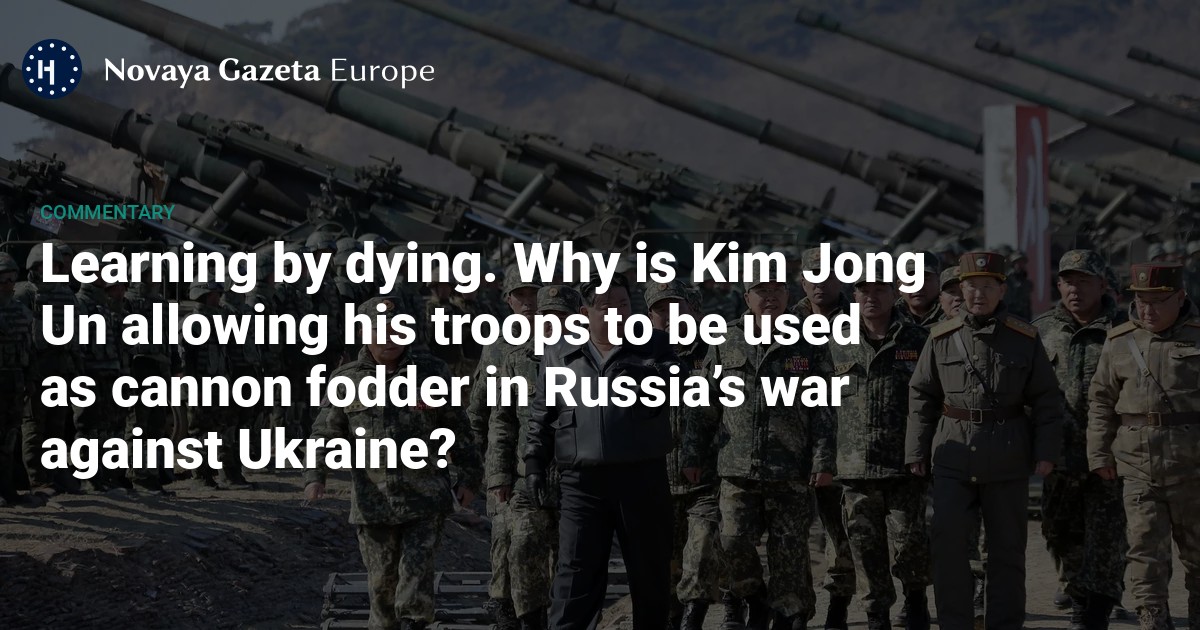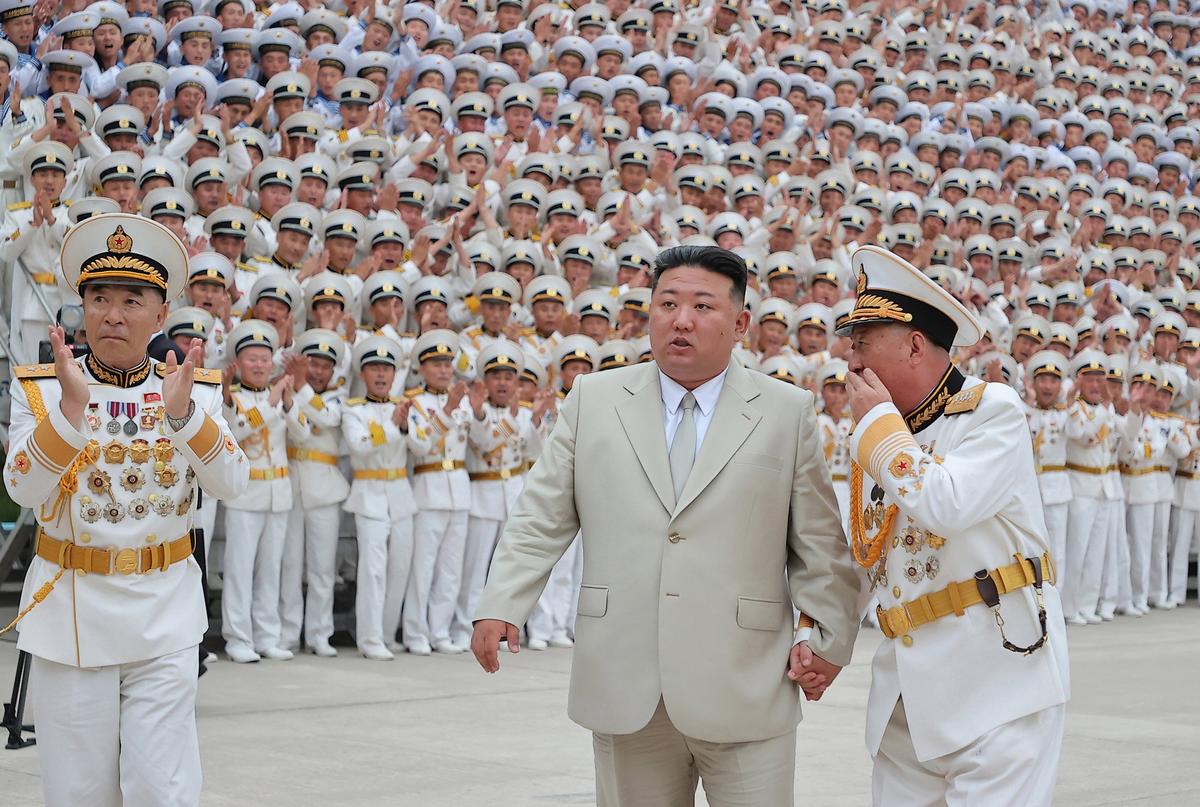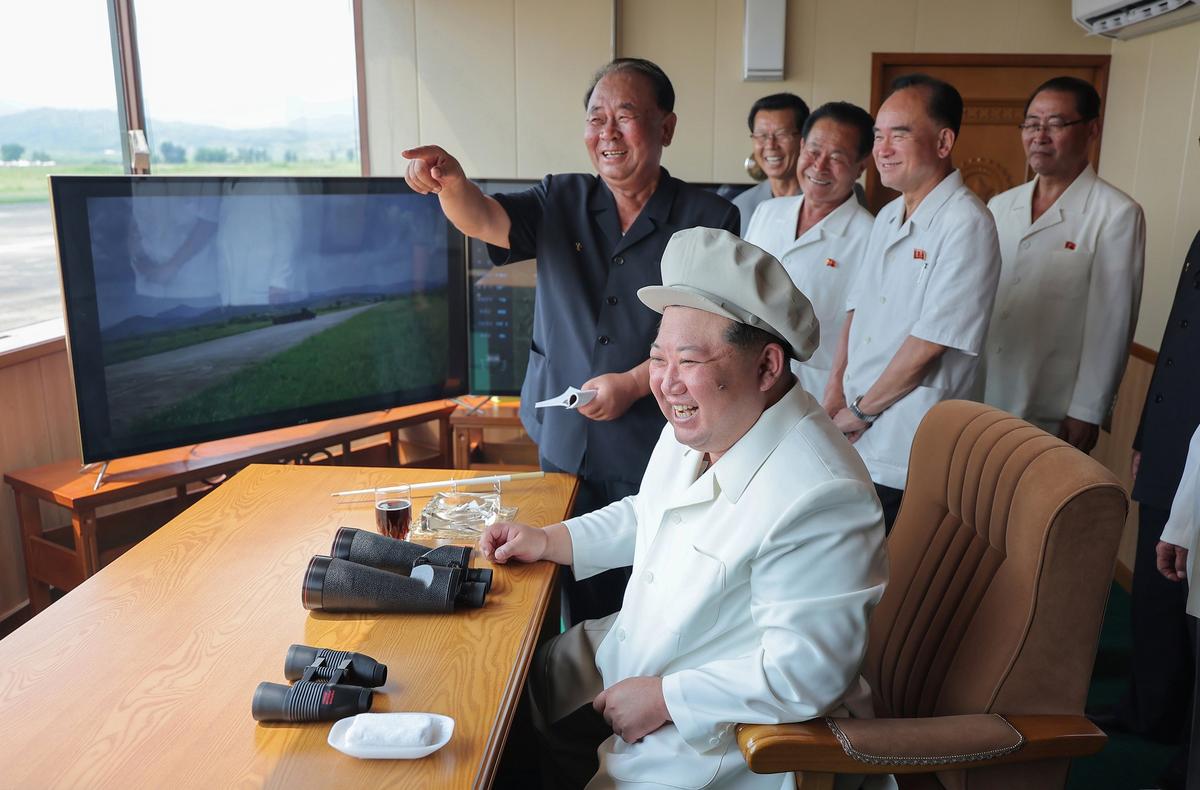



North Korea is believed to be preparing to send another group of soldiers to come to Vladimir Putin’s aid in the war in Ukraine, despite heavy combat losses already suffered by troops from the east Asian country.

Jennifer Mathers
Senior Lecturer in International Politics, Aberystwyth University
When Ukrainian forces crossed the border into Russia’s Kursk region in August, Ukraine’s military commanders hoped that their surprise move would force Moscow to withdraw troops from eastern Ukraine to defend Russia’s own territory. Kyiv did not expect its troops to end up fighting North Koreans.
Neither Moscow nor Pyongyang have officially confirmed that North Korean troops are fighting side by side with Russians. But South Korean intelligence has been reporting on their presence since October, when approximately 1,500 North Korean special forces troops were observed to have arrived in the Russian city of Vladivostok, initially for training.
This group was later joined by another 10,000 or so of their comrades (some of whom are also believed to be from North Korean special forces units). They were then transported nearly 7,000 kilometres across Russia to reach the combat zone.
North Korean soldiers were first spotted fighting in the Kursk region alongside Russian forces in early December, according to the Ukrainian president, Volodymyr Zelensky. By mid-January more than 40% of the North Koreans troops deployed to Russia were believed to have been killed, injured or captured, with as many as 1,000 thought to have been killed. Recent reports suggest that North Korean troops are now being pulled from the front lines due to those losses, potentially for extra training.
North Korea, an isolated dictatorship with few allies, is one of Russia’s most reliable sources of weaponry, including missiles and the millions of rounds of ammunition that Russia needs to continue to fight its war against Ukraine. North Korea, however, would seem to have little reason to send its own people to risk their lives in that conflict. But North Korean soldiers appear to be at the heart of a deal struck by North Korean dictator Kim Jong Un and Vladimir Putin last year.
For Putin the gains are clear. His campaign in Ukraine has received a much-needed influx of trained soldiers to shore up efforts to retake Russian territory occupied by Ukrainian forces.

Kim Jong Un inspects naval officers as part of Navy Day celebrations, in Pyongyang, North Korea, 27 August 2023. Photo: EPA-EFE/KCNA
Although the numbers of North Korean troops are relatively small, their strategic deployment allows Russia to push the Ukrainians back without diverting any of its forces from their offensive operations in eastern Ukraine. Expectations are high that Donald Trump’s return to the White House could mean an end to the war — or at least a pause — sooner rather than later. This gives Putin an incentive to occupy as much Ukrainian territory as possible ahead of a ceasefire, when occupied areas are likely to form the basis of territorial settlements.
The suggestion that Russia is not capable of maintaining its position in Ukraine and also defending its own territory without the addition of foreign troops is very revealing.
Moscow is struggling to recruit enough of its own citizens to fight in Ukraine. This is despite offering salaries and benefits packages to prospective soldiers that are beyond generous. The lack of resistance to Kyiv’s summer incursion into Russian territory made it clear that Russia is relying upon barely trained conscripts — that is, teenage boys doing their one year of compulsory military service — to defend its borders rather than professional soldiers, and while Russia has regained control of a substantial proportion — perhaps more than 60% — of the area seized by Ukraine in the summer, this has taken nearly six months to accomplish.
Participating in Russia’s war against Ukraine provides the North Korean military with its first experience of combat in more than 70 years.
For Kim Jong Un, sending his soldiers to fight for Russia provides his troops with valuable experience of combat in a conflict that is rapidly defining how war will be waged in the future.
Since the end of the Korean War in 1953, Pyongyang has placed a high priority on maintaining a large and heavily armed standing army. After training, North Korean soldiers are mostly used for patrolling the demilitarised zone that marks its border with South Korea. Participating in Russia’s war against Ukraine provides the North Korean military with its first experience of combat in more than 70 years.
Observations from Ukrainian soldiers suggest the North Korean soldiers are courageous and determined fighters but with no experience of actual combat. The Ukrainians have described the North Koreans as relying on strategies typical of the Second World War: for example, advancing in large groups on foot, where they provide easy targets for artillery and drone strikes. They were also apparently bemused by the appearance of drones on the battlefield and had no idea that these objects could deliver lethal attacks.

Kim Jong Un oversees a demonstration of drones in North Korea, 24 August 2024. Photo: EPA-EFE / KCNA
This degree of inexperience, together with Russia’s tactic of using the North Koreans to draw the fire of the Ukrainians and clear the way for the Russians to advance, is believed to be the reason for such high losses so soon after their deployment.
In January the Ukrainians managed to capture two North Koreans and question them, which has provided the clearest picture so far of their experiences of fighting with the Russian armed forces. The North Korean soldiers both had false identity papers with Russian names, which is consistent with official denials of their presence.
The men, who spoke no foreign languages and had to be questioned through an interpreter, said that they had both been soldiers for several years. This supports the Ukrainians’ impression that the North Koreans are trained and disciplined. Both prisoners, however, reportedly believed they were being sent to Russia to participate in training exercises, not to fight in a war.
Considering the heavy losses and the brutal treatment that North Korean troops have already suffered, Kim Jong Un might be expected to seek the speedy return of his soldiers rather than preparing to send more of their comrades to fight with Russia. But high casualties on the battlefield seems to be a price that North Korea’s president is willing to pay for combat experience that might give his army an edge in any future war that he fights on his own behalf.
This article was first published by The Conversation. Views expressed in opinion pieces do not necessarily reflect the position of Novaya Gazeta Europe.
The Russian government has banned independent media. We were forced to leave our country in order to keep doing our job, telling our readers about what is going on Russia, Ukraine and Europe.
We will continue fighting against warfare and dictatorship. We believe that freedom of speech is the most efficient antidote against tyranny. Support us financially to help us fight for peace and freedom.
By clicking the Support button, you agree to the processing of your personal data.
To cancel a regular donation, please write to [email protected]
VPNovaya
Help Russians and Belarusians Access the Truth
